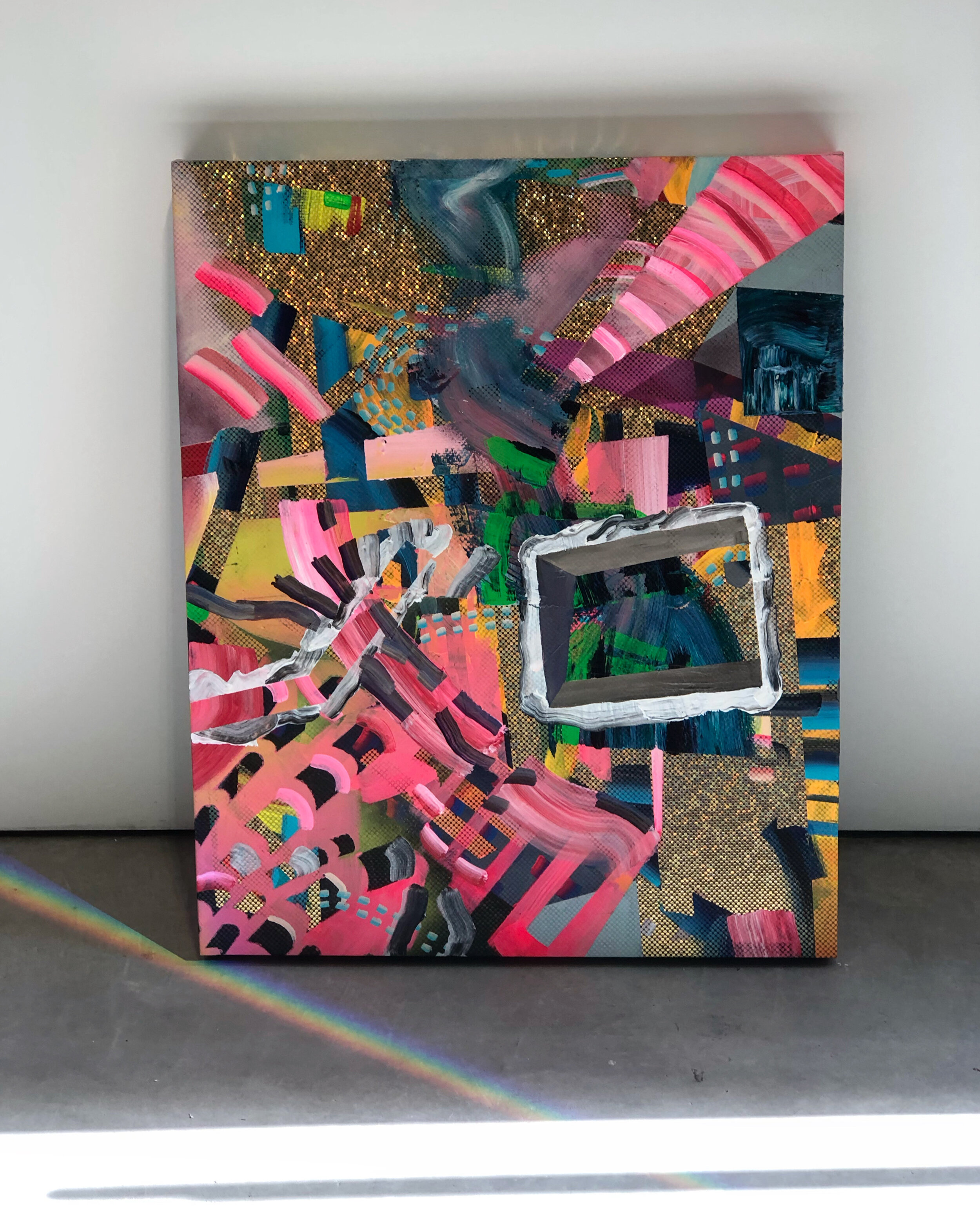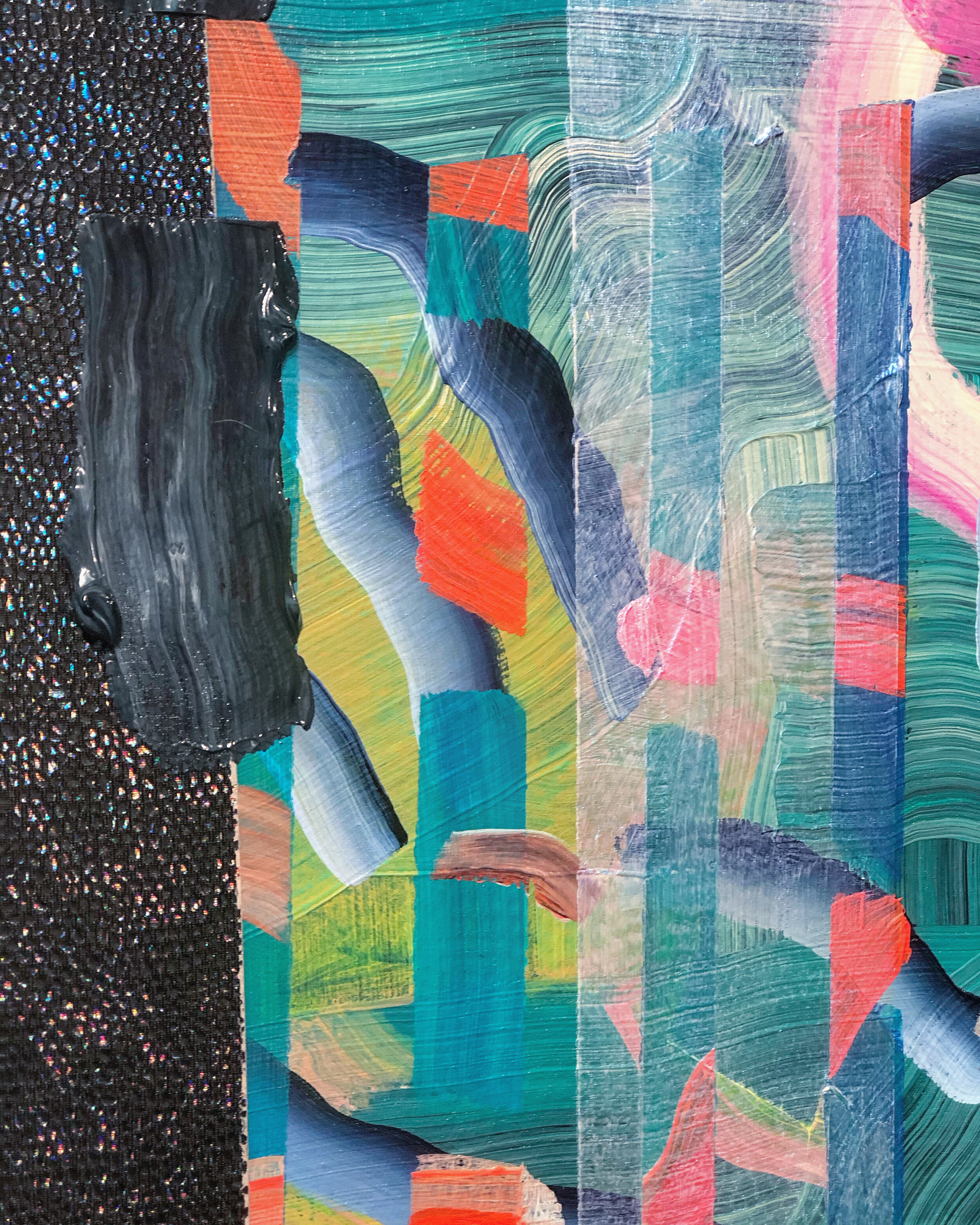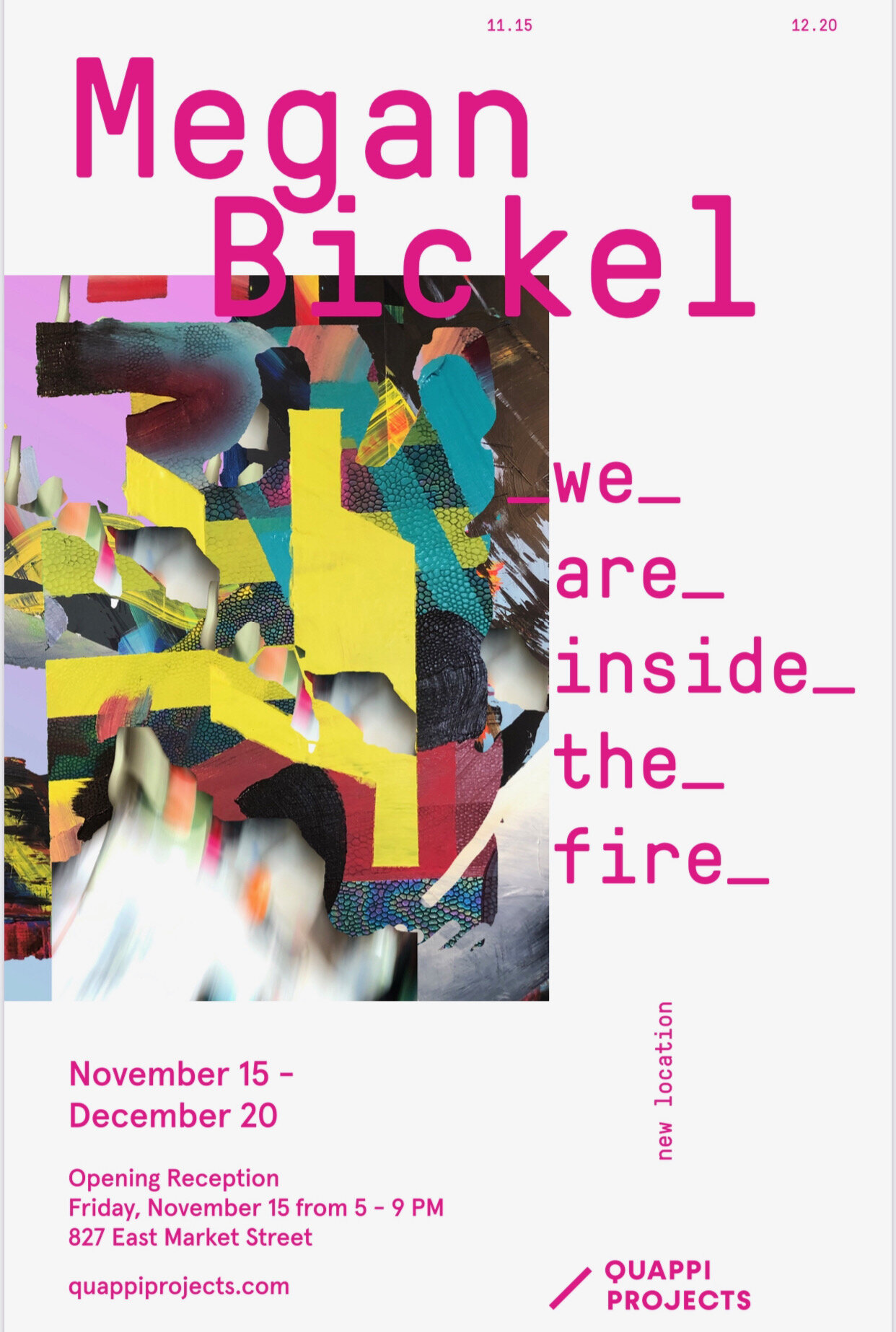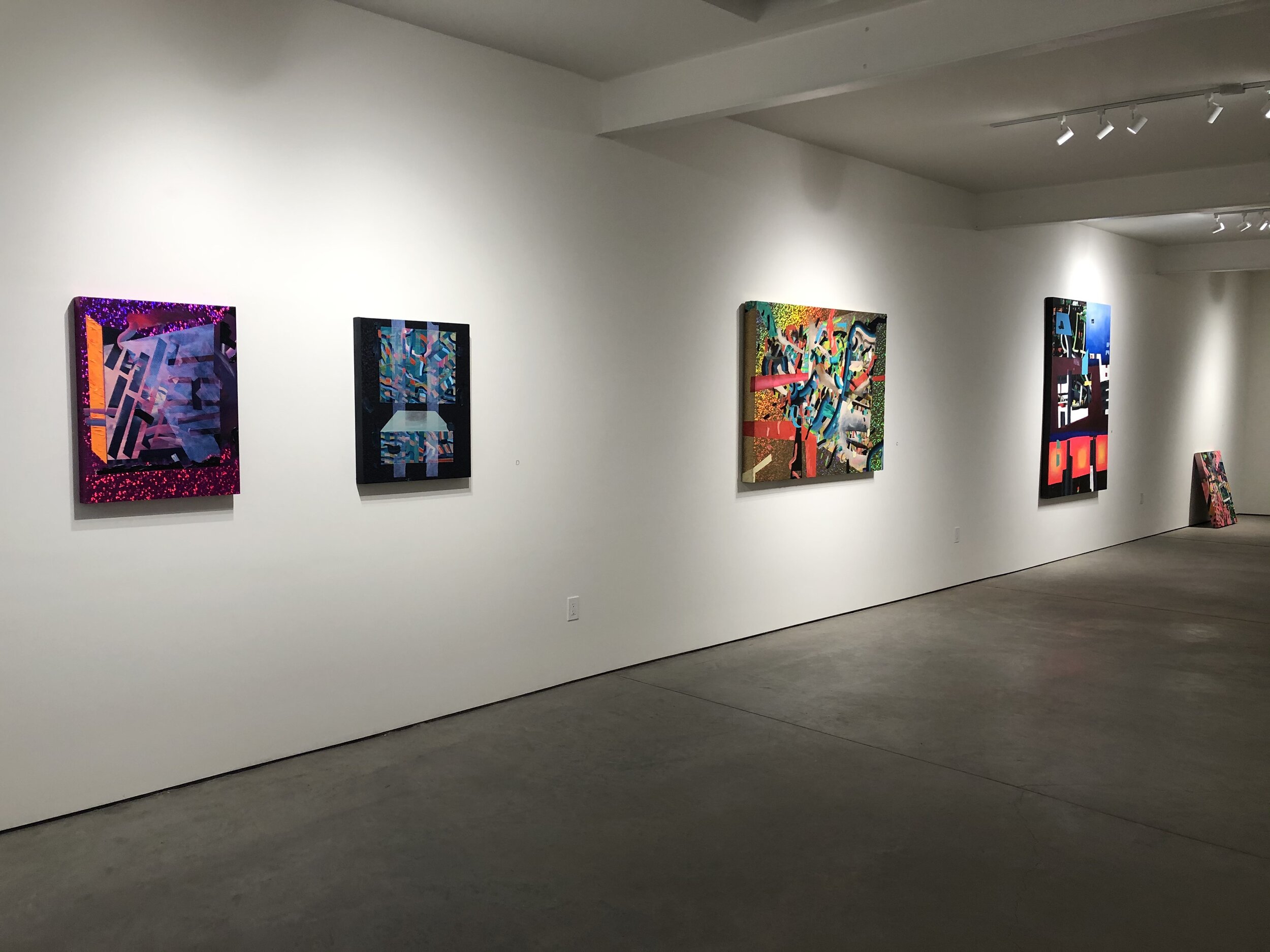15 Nov 2019—4 Jan 2020
Megan Bickel—
we_are_inside_the_fire









Quappi Projects is pleased to present multidisciplinary artist Megan Bickel’s “we_are_inside_the_fire” The works exhibited read as paintings, yet to call them such is to diminish their complexity. Approaching her practice with profound intention and from the perspective that making relevant work requires knowledge about such diverse subjects as aesthetics, politics, science, economics, and history, Bickel employs disparate and unusual materials while using the visual language of painting to play with ideas related to perception, experience, ethics, and painting itself.
Pursuing the untold potential of exploratory outcomes to create finished pieces replete with evidence of self-doubt, indecision and welcome “mistakes,” Bickel works in a type of abstraction that in a 2009 Art in America essay critic Raphael Rubinstein dubbed “provisional painting.” Bickel’s sense of composition and wild, disparate mark-making telegraph an intricate and visceral spacial density that claims its own kind of rhythmic discordance. It is clear she moves her brush haltingly and with some trepidation, but also while keenly attuned to the thrill of unapologetic experimentation. She works while questioning, not while asking permission. Emphasizing painting’s relationship to digital images and Photoshop, her works appear to morph before us, though we are uncertain if they are disintegrating or coalescing. Using inkjet digital reproductions of digital collages of previous paintings and ready-made textiles from craft stores, Bickel’s glistening objects seem to announce existence - theirs and perhaps our own - as an inherently flexible state. Nothing is entirely what it seems. We are made to sift through distracting fuzz for usable information.
In this most recent body of work, Bickel explores the relationship between the words allusion and illusion in an effort to, as she writes, “invite curiosity into our daily consumption of images” as a way to test deceptions and to encourage an instinctive skepticism of things we see, read and hear. In an era of “fake news” and “alternative facts,” this seems particularly judicious. An allusion, usually thought of in literary terms, hints at a subject without mentioning it, whereas an illusion, speaking in an artistic sense, is a kind of trick by which the viewer is convinced of some sort of falsehood. In order for an allusion to be successfully transmitted and comprehended, there must be a basic level of understanding, or a kind of agreement, between creator and viewer. An illusion ensures that a certain amount of power is retained by the creator. The viewer must grapple with the sense of ataxia and discomfort Bickel has cultivated, partially in order to reflect her own experiences with anxiety and post-traumatic stress disorder. Bickel’s deliberate material choice is notable, too. The textiles she employs, often marketed toward children, cosplayers, and LGBTQIA+ communities, have their own inherent dichotomy: they are both excessively flamboyant while intended to disguise or to allow the wearer to be seen as something they are not.
The exhibition’s title, a quote by Kabul journalist Karim Amini from an October 2019 New York Times Magazine exposé of the war in Afghanistan, conveys a mood of bombardment, secrecy and panic. With a mind on her interest in pyschohistory, which examines the “why” of history through a lens focused on the discrepancies between stated intentions and actual behavior, Bickel asks us to consider what it means to engage with work like hers that acknowledges an active pursuance in both suggestion and chicanery. A critique of contemporary culture and power structures, Bickel’s work engenders prolonged contemplation about how truth is conveyed and processed, who we are and, more importantly, amidst a fractured and fragmented populace living in a rapidly changing reality, who we might become.
—John Brooks
Megan Bickel (b. 1991) is a Louisville-based artist and writer. She is currently pursuing her MFA at the University of Louisville and also runs Houseguest, an independent artist-run project space in Louisville which she co-founded in 2017 with her husband, chef Jacob Wilson.
